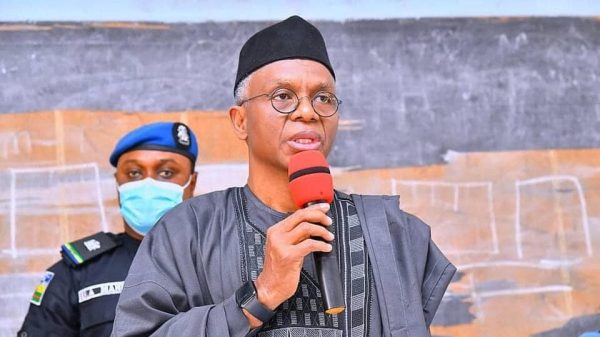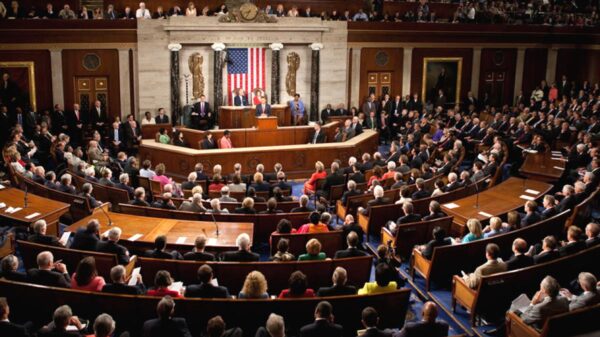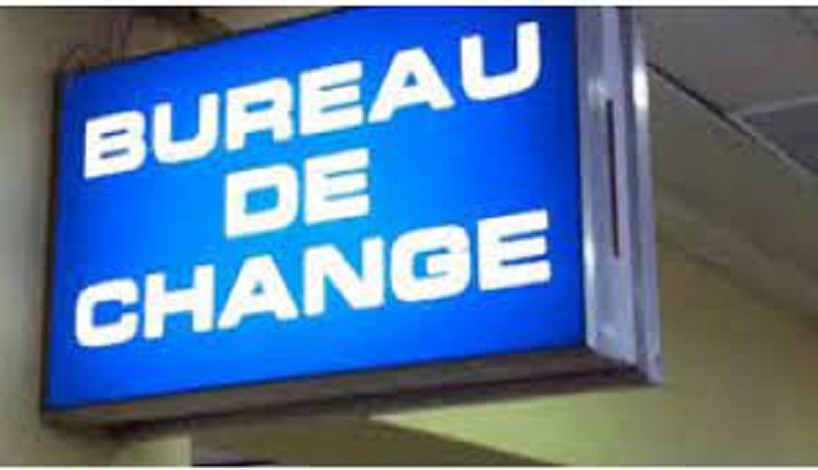Central Bank of Nigeria has mandated all existing Bureau De Change Operators to re-apply for new licenses in their preferred category.
This was announced on Wednesday in a circular issued by the apex bank, which was signed by the Director of the Financial Policy and Regulation Department, Haruna Mustafa.
However, BDC operators have rejected the new licensing guidelines, saying it is against best global practices.
However, the CBN noted that those adjustments aimed to streamline BDC operations and enhance financial accessibility.
So This Happened (248) Reviews the Africa Magic Choice Award0:02 / 1:01
The apex bank noted that the BDCs were expected to adhere to corporate governance requirements and anti-money laundering, counter-terrorism financing, and counter-proliferation financing provisions.
The latest circular comes a day after the Monetary Policy Committee of the apex bank raised the benchmark lending rate to 26.25 per cent to tackle the country’s soaring inflation.
Reading the communiqué of the meeting, the Governor of the CBN, Olayemi Cardoso, said, “Members further observed the recent volatility in the foreign exchange market, attributing this seasonal demand, a reflection of the interplay between demand and supply freely functioning market system.”
The naira has depreciated significantly since the CBN unified the country’s exchange rates, trading between 1,400/$ and 1,600/$ at the official and parallel markets in the last two weeks.
The new guidelines, which are an update on the draft that was exposed earlier in the year, go into effect on June 3.
The CBN removed the mandatory caution deposit, which the industry players had kicked against.
CBN set up two new categories; Tier 1 and Tier 2 BDC licences.
According to the new guidelines, “A Tier 1 BDC: a. May operate in any State of the Federation and the Federal Capital Territory, b. May establish branches and appoint franchisees in any state and FCT, subject to the written approval of the CBN. c. Shall maintain a minimum distance of one kilometre between its branches, its branch and a franchisee, and between its franchisees. d. Shall exercise oversight on its franchisees. All franchisees shall adopt their franchisor’s name, logo, branding, technology platform and regulatory rendition requirements. 2 Classified as Confidential: e. Shall comply with the franchising standards prescribed in this guidelines.”
A tier 2 BDC Licence allows the operator to operate from only one state of the federation or the FCT, and it is allowed to establish five branches in a state of operation, subject to the written approval of the CBN.
It is also required to maintain a minimum distance of one kilometre between its branches and is not allowed to appoint franchisees.
The BDCs (existing or new) would also be required to meet the capital requirements for their license category within six months.
Meanwhile, the President of the Association of Bureau de Change Operators of Nigeria, Aminu Gwadebe, speaking with The PUNCH said, “The requirement is huge. It is not in line with global practices. Capitalisation in the UK is 50,000 pounds; in Kenya, it is $50,000 and so on. I don’t think it reflects global practice. A BDC is not a deposit taker; it is only buying and selling.
“Also, I’m afraid, we would not go the way of Algeria when they came with such policies and at the end of the day, every other player runs to the open market operations and at the end of the day, Algeria had to look for that open market to even determine their local currency exchange rate. We should be careful so that we will not throw away our experience, capacity and investment,” he warned.
According to the ABCON president, the deadline given to BDCs is short.
“When you are giving other sectors, one year, or two years, why the rush with the sub-sector? The deadline is quite short. It is not feasible and then we should also guide against what we are trying to avoid. The CBN in its mind is checkmating money laundering and we may meet money laundering in the future,” he argued.
According to the new rules, BDCs in the Tier 1 category would be required to have a minimum capital requirement of N2bn, pay N1m as a non-refundable application fee and N5m as a non-refundable licence fee.
The apex bank disclosed that Tier 2 BDCs would be required to have a minimum capital base of N500m, N0.25m as a non-refundable application fee and N2m as a non-refundable licence fee.
The new rules allow BDCs to participate in the Nigerian foreign exchange market as a dealer, following application and approval to the director of the Trade & Exchange Department for an authorised dealership licence.
The CBN said while BDCs could source dollars from individuals, adding, “Sellers of the equivalent of $10,000 and above to a BDC are required to declare the source of the foreign exchange and comply with all AML/CFT/CPF regulations and foreign exchange laws and regulations and customers may sell foreign currencies in their individual domiciliary accounts with Nigerian banks to BDCs. All such sales shall be credited to the BDC’s Nigerian domiciliary account.
“Every BDC shall conspicuously display its buying and selling rates. Such rates shall apply throughout all its branches, and where applicable, its franchisees. Disclaimers or statements by a BDC to the effect that an exchange rate indication is not to be relied on are prohibited. i. A BDC shall not give customers price indications which are misleading or make price comparisons which are not genuine or fair. Every BDC shall maintain adequate records of all its transactions for transparency and compliance with CBN Guidelines, AML/CFT/CPF provisions, circulars or directives,” part of the guidelines stated.
In terms of prudential requirements, the CBN said, “BDCs are required to observe the following prudential requirements: Net Open Position (NOP) limit in foreign currency of the equivalent of 30 per cent of its shareholders’ funds unimpaired by losses or as may be determined by the CBN from time to time. Limit total borrowing to 50 per cent of shareholders’ funds unimpaired by losses and maintain insurance cover over cash (both naira and foreign currency) in office and in transit, fire, and staff fidelity.”
Credit: Punch
![]()






























































